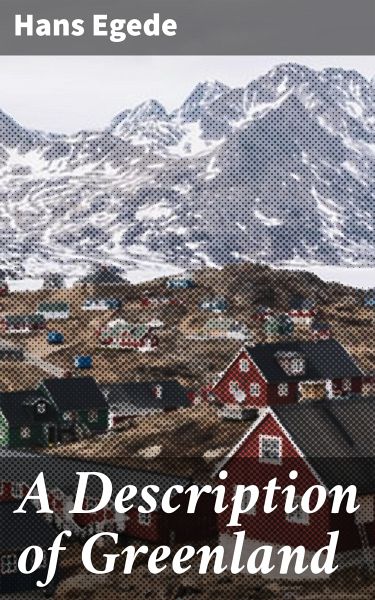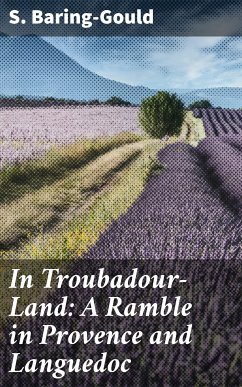
A Description of Greenland (eBook, ePUB)
Enriched edition. Exploring Greenland: A Journey through Arctic Landscapes and Nordic Cultures
Kommentar: Aldridge, Vanessa / Redaktion: Good Press
Versandkostenfrei!
Sofort per Download lieferbar
0,49 €
inkl. MwSt.
Weitere Ausgaben:

PAYBACK Punkte
0 °P sammeln!
In "A Description of Greenland," Hans Egede presents a meticulous account of the geography, inhabitants, and natural history of Greenland, revealing the complexities of a land often overshadowed in contemporary dialogues of exploration. Written in the early 18th century, the book reflects Egede's Enlightenment ideals, merging empirical observation with a theological perspective, as he details the indigenous culture and the natural environment. His prose is both descriptive and evocative, capturing the stark beauty of the Arctic landscape while addressing the socioeconomic conditions of the Gre...
In "A Description of Greenland," Hans Egede presents a meticulous account of the geography, inhabitants, and natural history of Greenland, revealing the complexities of a land often overshadowed in contemporary dialogues of exploration. Written in the early 18th century, the book reflects Egede's Enlightenment ideals, merging empirical observation with a theological perspective, as he details the indigenous culture and the natural environment. His prose is both descriptive and evocative, capturing the stark beauty of the Arctic landscape while addressing the socioeconomic conditions of the Greenlandic people within the context of European colonization and missionary efforts. Hans Egede, a Norwegian-Danish missionary and explorer, dedicated his life to studying and converting the indigenous Inuit population of Greenland. His personal experiences and profound commitment to understanding the culture and living conditions of the local people inform the book's depth and sensitivity. Egede's pioneering spirit and scholarly pursuits position him as a pivotal figure in the early European engagement with the North Atlantic regions, allowing readers to appreciate the nuanced interplay between exploitation and stewardship in colonial encounters. "A Description of Greenland" is essential reading for anyone interested in historical exploration, cultural anthropology, or the early dynamics of European colonialism. Egede's keen observations and willingness to share the voices of the indigenous people make it a vital text for understanding the historical context of Greenland and the interactions that shaped its legacy. In this enriched edition, we have carefully created added value for your reading experience: - A succinct Introduction situates the work's timeless appeal and themes. - The Synopsis outlines the central plot, highlighting key developments without spoiling critical twists. - A detailed Historical Context immerses you in the era's events and influences that shaped the writing. - A thorough Analysis dissects symbols, motifs, and character arcs to unearth underlying meanings. - Reflection questions prompt you to engage personally with the work's messages, connecting them to modern life. - Hand-picked Memorable Quotes shine a spotlight on moments of literary brilliance. - Interactive footnotes clarify unusual references, historical allusions, and archaic phrases for an effortless, more informed read.
Dieser Download kann aus rechtlichen Gründen nur mit Rechnungsadresse in A, B, BG, CY, CZ, D, DK, EW, E, FIN, F, GR, H, IRL, I, LT, L, LR, M, NL, PL, P, R, S, SLO, SK ausgeliefert werden.













